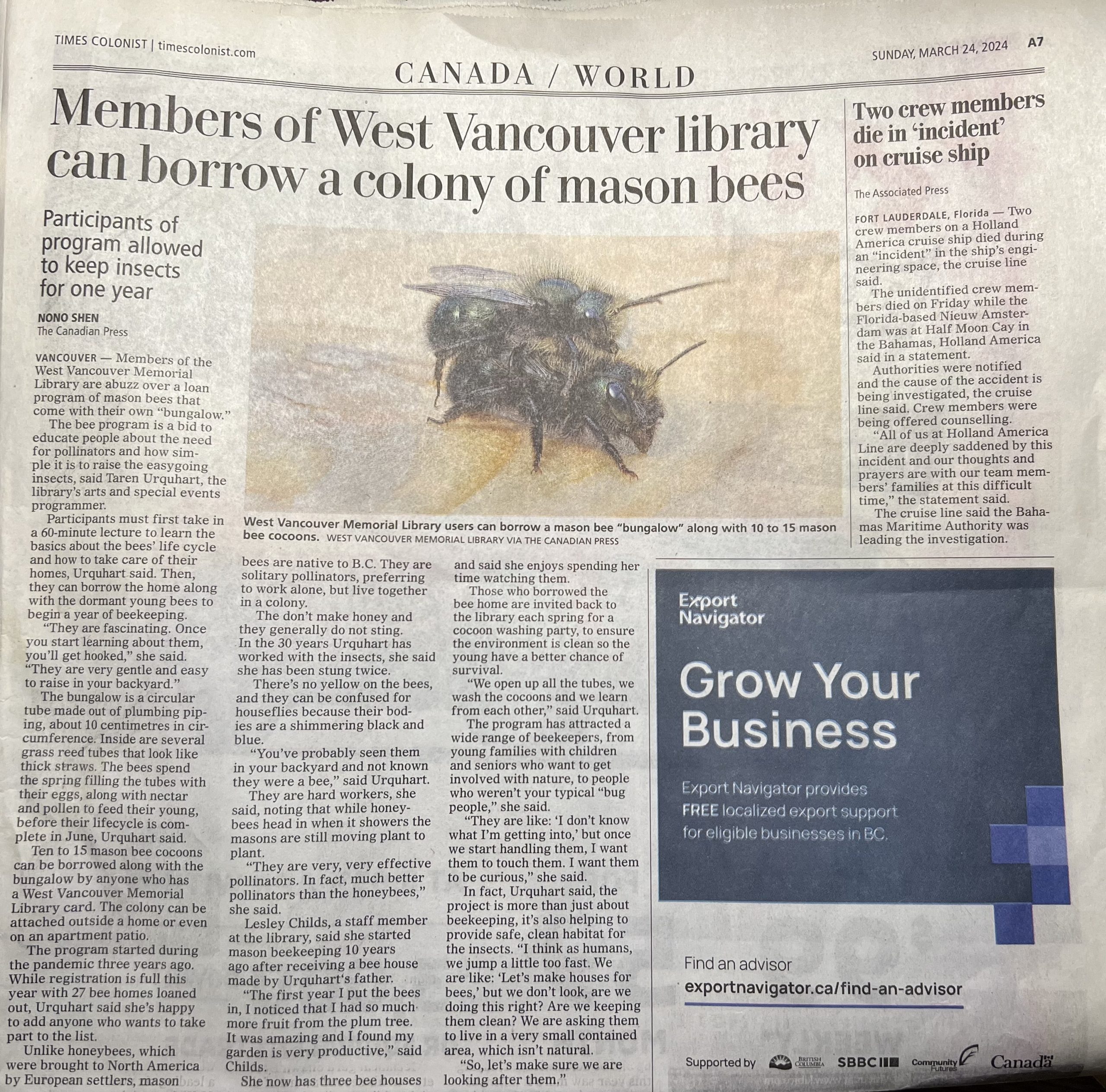Thanks to the Times Colonist of March 24, 2024 for the following article: Tghis presents a new idea emphasizing the value of these pollinators

In the February 3 2024 Times Colonist there is an article which poses the question about the ability of natural pollinators to withstand temperature swings. Although UBC researcher Alison McAfee is quoted about the effects of high temperatures being hazardous to bumblebee populations since false springs could make the bees emerge prematurely from hibernation, there is a strong possibility that other native pollinators such as mason bees which normally would emerge when daytime temperatures reach 13 degrees C, could also be affected. This is another reason for overwintering your cocoons in a controlled temperature location like a refrigerator. Controlling when you release the bees ensures that they will not be impacted by increasingly dramatic shifts in temperature. (Of course those who don’t look after their cocoons by cleaning out the tubes in the fall and storing the cocoons in a cold location risk more than temperature change, as parasites will probably take control of their bee populations anyway!)
Glyphosate, the active ingredient in Roundup, is one of the most commonly used herbicides in the world by commercial gardeners. However, many pesticides – including insecticides, fungicides, and herbicides – harm pollinators and other beneficial insects.
 To help educate those in the farming and gardening industries about this toxic chemical, drugwatch.com has created a comprehensive guide with organic, and homemade; and a second guide with agricultural alternatives. please take a look:
To help educate those in the farming and gardening industries about this toxic chemical, drugwatch.com has created a comprehensive guide with organic, and homemade; and a second guide with agricultural alternatives. please take a look:
drugwatch.com/roundup/
Glyphosate
Glyphosate is an herbicide used to kill weeds. It’s the active ingredient in Roundup and other weed killers, and can cause a variety of side effects. Recent lawsuits have claimed exposure to glyphosate in Roundup has led to certain cancers, including non-Hodgkin lymphoma.Alternatives to Roundup
See the article at this link:
https://www.drugwatch.com/roundup/alternatives/
Roundup products contain glyphosate, a chemical linked to cancer and other illnesses. Chemical alternatives to Roundup can also contain toxic ingredients, but safe alternatives to Roundup include soap, vinegar, salt or iron-based sprays, mulching and integrated weed management.
==========================================================
 Also this article explains the problem with pollinators and Roundup:
Also this article explains the problem with pollinators and Roundup:
===============================================================